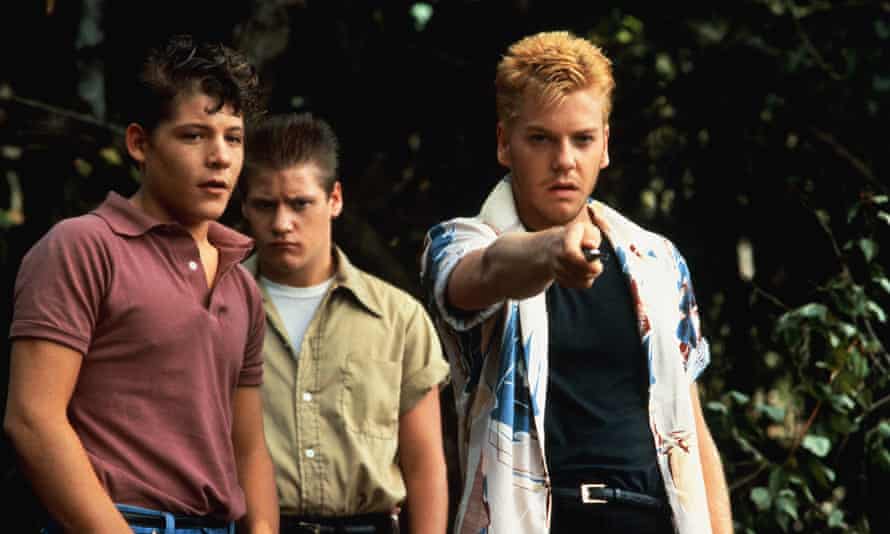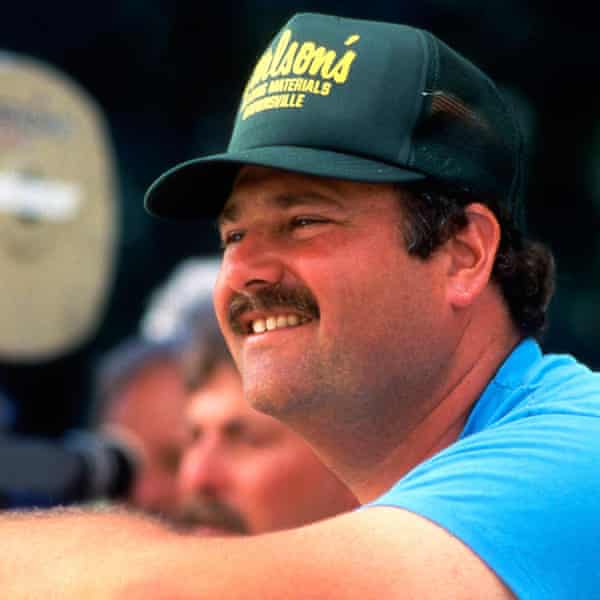This was the only audition where I did the reading and was hired right there in the room. I absolutely adored Spinal Tap, so to get that kind of affirmation from a director like Rob Reiner at that time in my life was really powerful.
Rob and I both agreed very strongly that there was no mushy side to this guy [villain Ace Merrill]. This is an asshole to the marrow of his bones; unfortunately, every town seems to have one. He was a bully and the only way to make the character work was if you hated him.
I worked with the main cast very little but when I’d get there early, they would be workshopping scenes and trying out each other’s lines. River [Phoenix] specifically had such an appetite to learn and be good – and, of course, he was. He was a year older than the rest of the boys and I think it made a pretty significant difference. When the others were doing age-appropriate things, River was asking questions like: “Would you mind running lines with me?” He saw me playing guitar and asked: “What song is that? Would you teach me?” His desire to get to the next level was so evident that you knew he was going to do something special. He was interested in storytelling from the perspective of learning and sharing as opposed to just entertaining.

There was no animosity between the older and younger cast – I’ve never been that kind of actor. There’s a separation between how I am in my life and what we’re doing in between “action” and “cut” – thank God, because I’ve played some horrible characters, and Ace Merrill was one of them.
John Cusack was on the film for at least a week. I admired what he was doing and thought he was an actor I wanted to emulate. I got to spend time with him and we had some fun. We weren’t that far from Portland so we’d go to dances or try to meet girls. There’s absolutely nothing I don’t remember fondly about that film.
There was maybe a three-year period where I felt like the luckiest person on the planet. I got to do Stand By Me, The Lost Boys and Young Guns. I was cruising through and having a blast. There’s never felt like another time like that. In many ways, the story that was being told in the movie was actually happening to me in my life. Those are the summers and friends I will never forget.
Rob Reiner, director
Some friends were developing Stand By Me for the director Adrian Lyne but he left the project. They took it to me to read. I connected with the characters, loved the time period and everything about it. “Maybe I’ll take a shot at this,” I said.
For the next four days I drove around LA with a migraine because I couldn’t figure out what to do with it. It was this wonderfully observational piece that Stephen King had written about his experience going to look at a dead body with his friends. Once I hit on the idea of Gordie (Wil Wheaton) being the one that goes through this big emotional upheaval, then I hooked into it. In the book, Gordie was just an observer; once I decided to make him the main character, it all fell into place.
Wil had this sensitivity and intelligence. Jerry O’Connell (who played Vern) had never acted before apart from a commercial. The only one with real experience was Corey Feldman (Teddy). I’d never met a 12-year-old with that kind of rage inside of him, but in learning about his background and that his parents had split up and there wasn’t a lot of closeness there, I could see where it was coming from. River (Chris) was 13 and like a young James Dean. There was so much soul there. He had this great wisdom for a guy that age.

We shot in Brownsville, Oregon. It rains a lot there but we were lucky and got 60 straight days of sunshine. Even the day they were supposed to find the body was sunshine – we had to soak the whole set so it looked gloomy. I was looking for a town that had stopped in time and felt like it was in the 50s. We purposely tried to give it this hazy, gauzy and nostalgic look. Cinematographer Thomas Del Ruth did a magnificent job.
The vomit in the pie-eating scene was a mixture of large curd cottage cheese and blueberry pie filling and we were flinging it all over the place. That was fun, but the train sequence was difficult. For long shots we had stunt doubles and when I did shots with the actual boys, we used long lenses so the train looked like it was right on top of them even though it hadn’t even entered the trestle. They were supposed to be freaking out but didn’t feel the pressure. I started getting mad. It was hot and the crew had to push the camera down this long dolly track, so I said: “These guys are breaking their asses because you guys are fucking up!” The next time, they were frightened. Afterwards, they ran over, gave me a big hug and said “We did it Rob!” They were great.
Stand By Me means more to me than any of the other films I’ve made. It was the first time I did a film that reflected my own personal sensibility; it had a mixture of melancholy, humour and nostalgia. I was 12 in 1959 so the music was the music I listened to and the feelings I had in relation to my father, I injected into the film. When it came out and was accepted it validated me. It gave me a big boost to press forward.








